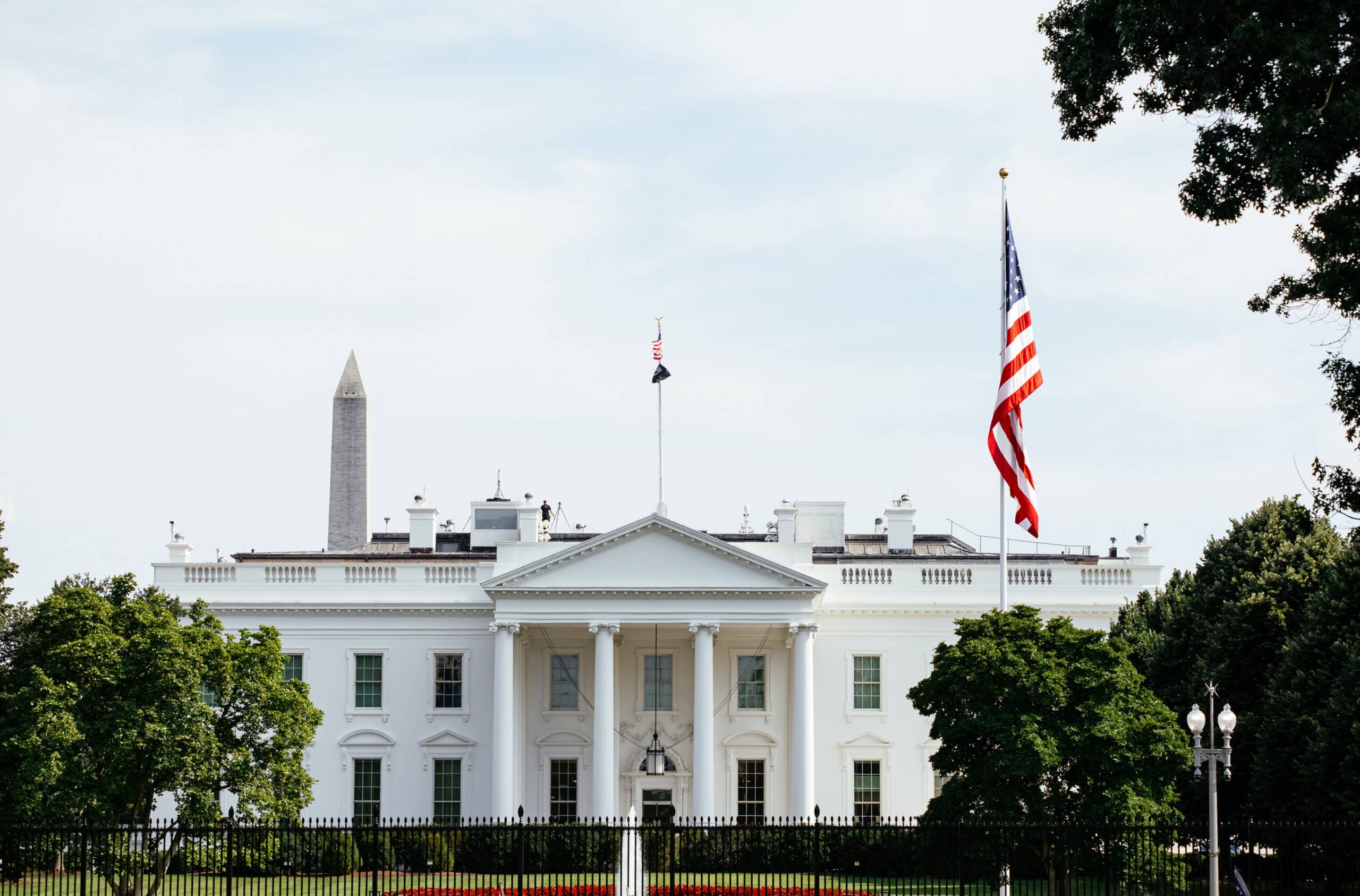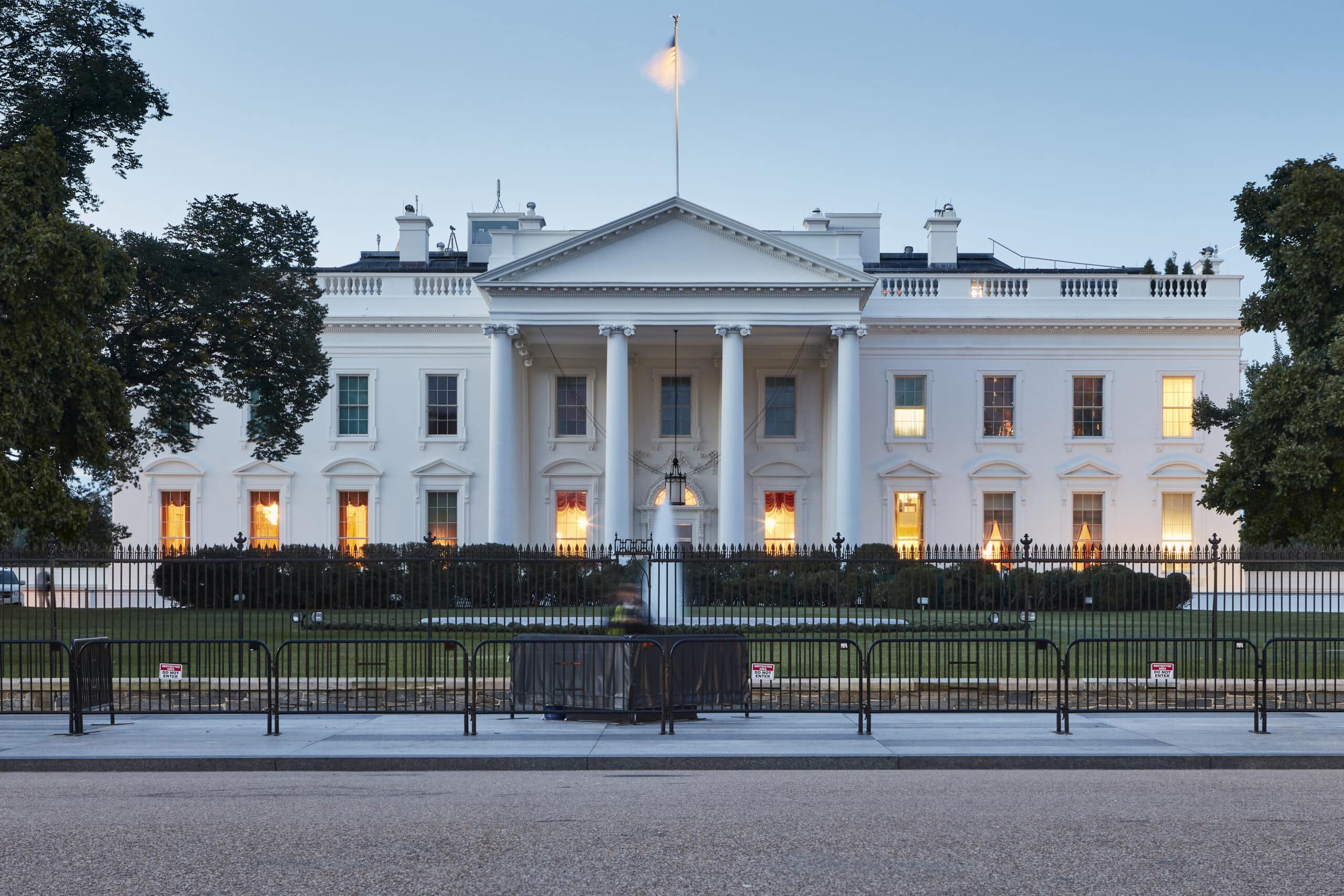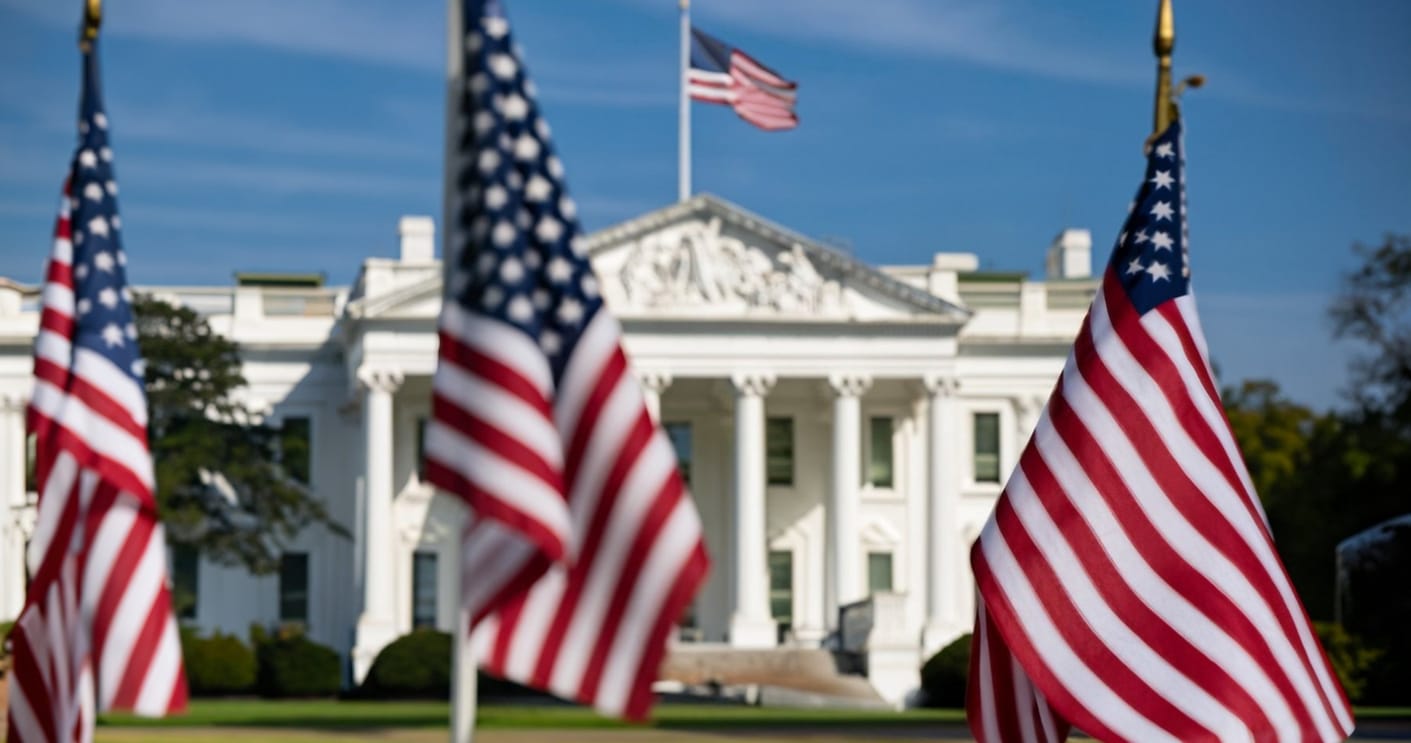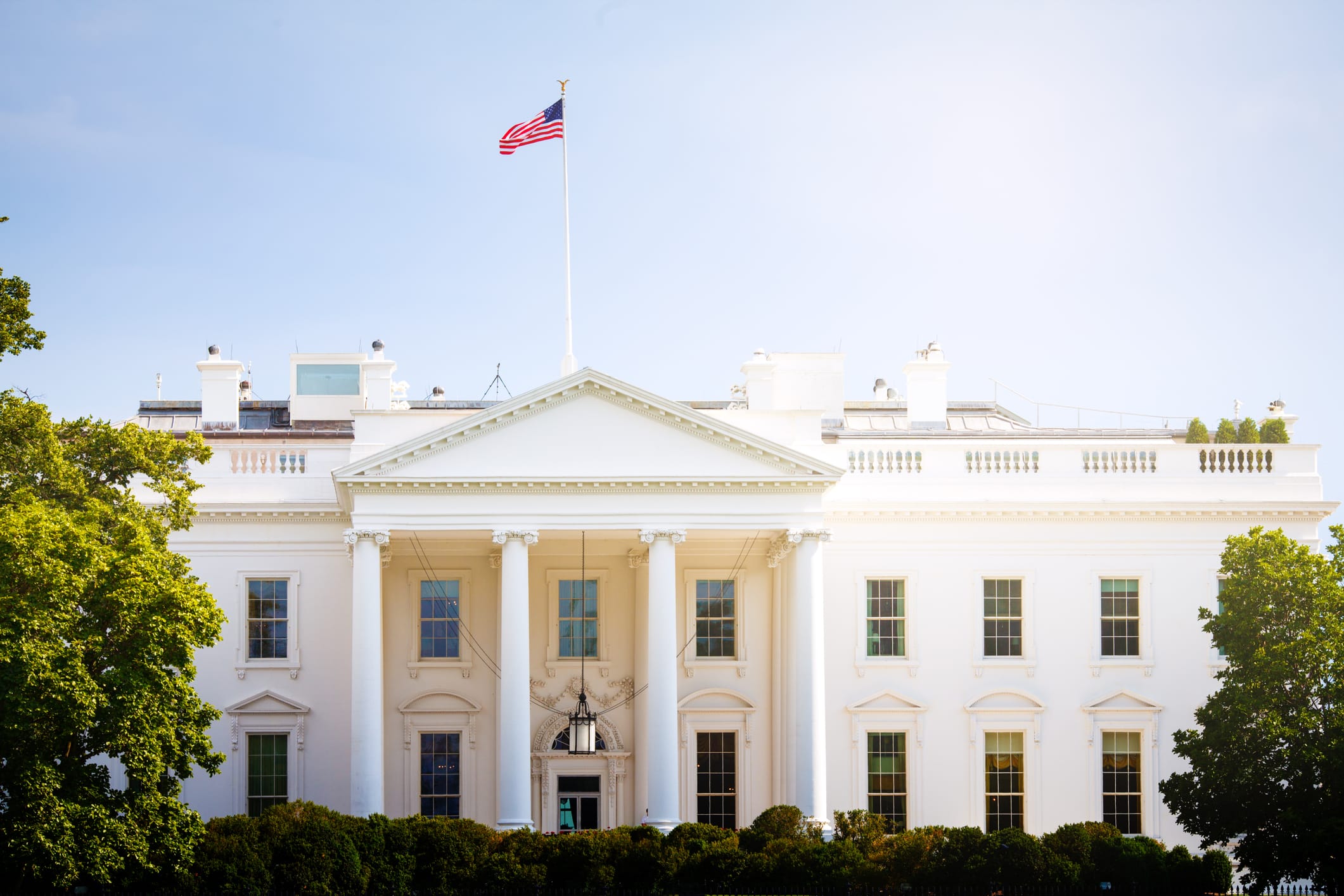Voters split on President Trump deploying National Guard to US cities; redistricting efforts in California and Texas
A new Emerson College Polling national survey finds President Donald Trump with a 45% job approval rating, and 47% disapproval. Since last month, the President’s approval slipped one point, while his disapproval held at 47%.
2028 Presidential Election
California Governor Gavin Newsom leads in the 2028 Democratic presidential primary with 25% support, a 13-point increase from the Emerson June national poll. Sixteen percent support former Secretary of Transportation Pete Buttigieg, 11% former Vice President Kamala Harris, 5% Pennsylvania Governor Josh Shapiro, and 4% support Illinois Governor JB Pritzker and New York Congresswoman Alexandria Ocasio-Cortez, respectively.
“Governor Newsom’s support surged across key demographic groups, highlighted by a 12-point increase among voters under 30 (6% to 18%) an 18-point increase among voters over 70 (13% to 31%), and a 14-point increase among both Black (9% to 23%) and White (10% to 24%) voters,” Spencer Kimball, Executive Director of Emerson College Polling, noted.
In the 2028 Republican presidential primary, over half (52%) of Republican voters support Vice President JD Vance, followed by Secretary of State Marco Rubio with 9%, and Florida Governor Ron DeSantis with 7%.
In a hypothetical 2028 election matchup between Vice President Vance and Governor Newsom, the potential candidates are tied with 44% support, respectively. Twelve percent are undecided. In the July Emerson national poll, 45% supported Vance while 42% supported Newsom.
“Newsom’s recent gains are driven largely by younger voters 18-29: after splitting this group in June (39% to 38%), he now holds a clear lead, 45% to 28%,” Kimball said.
When asked about California’s congressional redistricting, 56% of voters said it is a bad idea, while 44% said it is a good idea. On a separate question about Texas, 54% called the redistricting a bad idea, and 46% said it is a good idea.
“Support for redistricting looks similar overall for Texas and California, but the partisan swings tell a different story: in Texas, 77% of Republicans back redistricting compared to 44% in California. Meanwhile, 52% of Democrats support redistricting in California, while only 21% do in Texas,” Kimball noted.
National Guard
A plurality of voters (48%) disapprove of President Trump deploying the National Guard to 19 states to assist Immigration and Customs Enforcement, while 44% approve of the action.
Opinion among US voters is split regarding Trump sending the National Guard to patrol communities to combat crime in different US cities.
Top Issues
The economy remains the top issue for voters at 33%, up two points from July, followed by threats to democracy at 24%, immigration at 12%, and healthcare at 9%.
Forty-one percent of voters say their family’s finances are worse off than a year ago, up four points from July; 28% say they are better off financially than a year ago, a four-point decrease, and 31% say they are about the same.
A majority of voters (65%) think legalizing marijuana nationally is a good idea, while 35% think it is a bad idea. This is a five-point increase in support for legalization nationally since October 2024.
“All age groups think national marijuana legalization is a good idea except those over 70, who think it is a bad idea 52% to 48%,” Kimball said. “Support is highest among voters under 30 (71%) and in their 40s (74%).”
Super Bowl 2026
Ahead of the NFL’s opening game of the 2025-26 season, opinion is split on who will be the winner of the 2026 Super Bowl. Ten percent think the Kansas City Chiefs will win the Super Bowl in 2026, 7% the Philadelphia Eagles, 7% the Buffalo Bills, and 5% the Detroit Lions.
“Northeasterners are most confident in the defending champion Eagles repeating, with 20% expecting them to win another title. In the Midwest, regional loyalties show through, as more fans are backing the Lions (15%) and Packers (14%) than the Chiefs (11%),” Kimball said.
Methodology
The Emerson College Polling national survey was conducted August 25-26, 2025. The sample of U.S. active registered voters, n=1,000, has a credibility interval, similar to a poll’s margin of error (MOE), of +/- 3 percentage points. The data sets were weighted by gender, education, race, age, party registration, and region based on U.S. Census parameters and voter file data.
It is important to remember that subsets based on demographics, such as gender, age, education, and race/ethnicity, carry with them higher credibility intervals, as the sample size is reduced. Survey results should be understood within the poll’s range of scores, and with a confidence interval of 95% a poll will fall outside the range of scores 1 in 20 times.
Data was collected by contacting a voter list of cellphones via email using voter lists provided by Aristotle, MMS-to-web text of an opt-in panel of voters provided by the Consensus Panel, with additional online panel interviews provided by CINT. Panel responses were matched to the Aristotle voter file using respondents’ full name and ZIP code. The survey was offered in English.
All questions asked in this survey with the exact wording, along with full results, demographics, and cross tabulations can be found under Full Results. This survey was funded by Emerson College.







